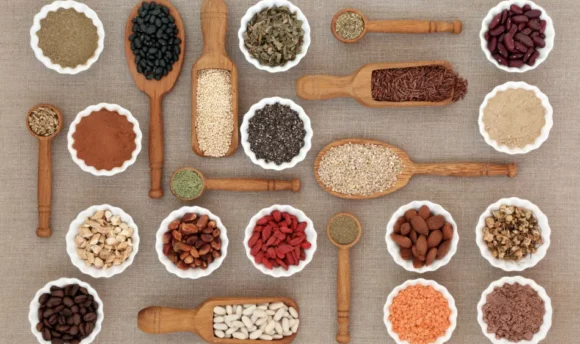Is Chicken Sausage Healthy? Nutrition and Calories

Chicken sausages are a popular alternative for those looking to avoid red-meat-based sausages, including those made from beef and pork.
Have you been looking for a healthier sausage choice than your regular pork sausages? Then, chicken sausage may be the one for you!
It is full of protein, vitamins, and minerals and is lower in fat and calories. Read on to learn more!
Is Chicken Sausage Healthy?
Chicken sausage is healthy compared to red-meat-based sausages since they are lower in saturated fat and calories. However, choose a low-sodium variety of sausage to avoid excess salt consumption.
How Is Chicken Sausage Made?
Chicken sausage is ground-up chicken combined with a binding ingredient, such as cheese. Also, flavoring is added, including vegetables, spices, and herbs.
Many brands of chicken sausage contain a casing surrounding the sausage meat, whether it is a pork or collagen casing.
According to the United States Department of Agriculture (USDA), casings are typically made from the intestines of animals, such as beef or pigs. Therefore, the type of casing needs to be listed in the ingredients list on the packaging if the animal the case comes from is different from the meat inside the sausage.
Additionally, collagen casings are manufactured casings that come from animal hide.
Thank you for your answer
Health Reporter Surveys
Chicken Sausage vs. Pork Sausage
When looking at an example pork sausage product compared to chicken sausage, the pork sausage contains just under 300 calories less than the chicken sausage per 100g. However, the chicken sausage contains almost as much protein as the pork.
Additionally, the pork sausage contains over 30g more fat and over 25mg more cholesterol per 100g when compared to the chicken sausage.
Finally, the pork sausage in this example contains over 300mg more sodium per 100g serving than the chicken sausage.
Is chicken sausage healthier than pork sausage?
Chicken sausage is lower in calories, fat, cholesterol, and sodium but practically just as high in protein as traditional pork sausage. Many processed meats, including turkey bacon, hot dogs, and other sausage products, have too much sodium due to the way they are processed and preserved.
According to the CDC, sodium adds flavor and saltiness to processed foods when it comes to sodium. It also acts as a preservative that extends shelf life and prevents bacterial growth.
Look at the milligrams of sodium on the nutrition facts label. According to the University of California San Francisco, if a serving contains 400mg of sodium or more, it is a high-sodium food. Conversely, a serving with 140mg or less is considered a low-sodium food.
Consuming excessive sodium and saturated fat, found in processed meat, can increase the risk of high blood pressure, heart attack, and stroke.
Therefore, consuming the lower salt option is healthier in reducing the risk of chronic disease. For example, when choosing a sausage from the grocery store, look for a reduced-sodium or low-sodium variety.
What Ingredients Does Chicken Sausage Contain?
Chicken sausage contains a form of chicken, whether organic, free-range, or mechanically separated chicken. According to the USDA, mechanically separated means that the edible meat attached to bone was separated from each other using a machine similar to a sieve.
The sausage is often seasoned with spices and herbs such as basil, garlic, onion, and pepper. It may even contain other meats, such as beef and pork.
However, every brand of chicken sausage on the grocery store shelves will be slightly different, so it is vital to get familiar with reading the nutrition facts label and ingredients list.
Nutrition Facts
Chicken sausage nutrition facts are rich in protein, vitamins, and minerals, including iron. Let’s dive into more information about the chicken sausage nutrition.
Nutrition table (per 100g)
| Calories/Nutrient | Amount |
| Calories (kcal) | 123 |
| Net Carbs (g) | 3.51 |
| Sugar (g) | 0 |
| Fats (Total) | 4.39 |
| Protein (g) | 19.3 |
| Cholesterol (mg) | 79 |
Source: https://fdc.nal.usda.gov/fdc-app.html#/food-details/1893823/nutrients
High in vitamins and minerals
Chicken sausages are rich in vitamins and minerals, with one being iron. A serving of 100g of chicken sausage has 1.26mg of iron. This is more or less a significant amount, depending on age and gender.
Iron functions in the body to support blood production. Therefore, it is crucial to transfer oxygen around the body through the blood.
Additionally, chicken sausage has 70mg of calcium per 100g serving. Calcium works with vitamin D to build strong bones, teeth, and body tissues.
High in protein
Chicken sausages are high in protein, with a whopping 19 grams of protein per serving of 100g. This amount is just slightly lower than the grams of protein in pork sausages.
Protein is essential in repairing cells, especially after exercise or during pregnancy or childhood (National Library of Medicine and U.S. Department of Health and Human Services).
Check out this resource for more information on protein!
Low in fats and calories
Chicken sausage is relatively lean meat, with only over 4g of total fat and only 1.75g of saturated fat per 100g serving. Chicken sausages also have no trans fat in a 100g serving.
Additionally, it only has 123 calories per 100g, making it a healthy, low-calorie protein option to add to your meals.
High in cholesterol
While the recommendation used to be no more than 200–300 milligrams daily, the 2020–2025 Dietary Guidelines for Americans recommend consuming as little cholesterol as possible.
However, chicken sausages contain less cholesterol per 100g serving than pork sausage, making it the healthier choice with 79 milligrams.
Low in carbohydrates
All types of meat are naturally low in carbohydrates. Carbohydrates are typically found in starches, grains, fruit, and dairy. For example, 100g of chicken sausage only contains 3.51g of net carbohydrates.
However, chicken sausage does not typically contain any fiber. Fiber is essential for a healthy digestive system and helps reduce constipation.
FAQs
Chicken sausage is processed meat that contains nitrates and should be consumed in moderation. Additionally, all processed meats, such as turkey bacon and canned meat, typically contain nitrates and show be limited.
Chicken sausage contains 614mg in a 100g serving size. The 2020–2025 Dietary Guidelines for Americans recommend no more than 2,300mg of sodium a day to reduce the risk of heart disease, including heart attack, stroke, and high blood pressure.
A Word From a Dietitian
Chicken sausage is a versatile protein that can be a part of a healthy diet. It is low in calories but high in protein, iron, and calcium.
The main caveat to consuming chicken sausage is its high amount of sodium. Therefore, choose chicken sausages that are low in sodium and only consume them in moderation.
Additionally, chicken sausages have about 80mg of cholesterol per 100g serving. However, the 2020–2025 Dietary Guidelines for Americans recommend consuming as little dietary cholesterol as possible since the body naturally makes it.
Excess cholesterol and sodium consumption can increase the risk of heart disease, including heart attack and stroke.
Conclusion
Whether enjoyed in a hot dog bun or in a pasta casserole topped with bread crumbs, if you enjoy chicken sausages, absolutely incorporate them into your tasty meal as an alternative to pork sausage, beef sausage, or turkey bacon.
However, consume chicken sausage in moderation as it tends to be high in sodium.

















































 Select your language:
Select your language: 








